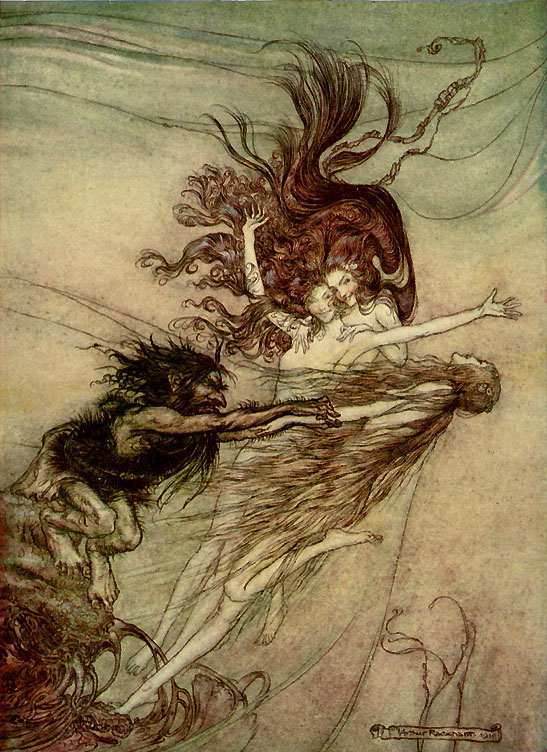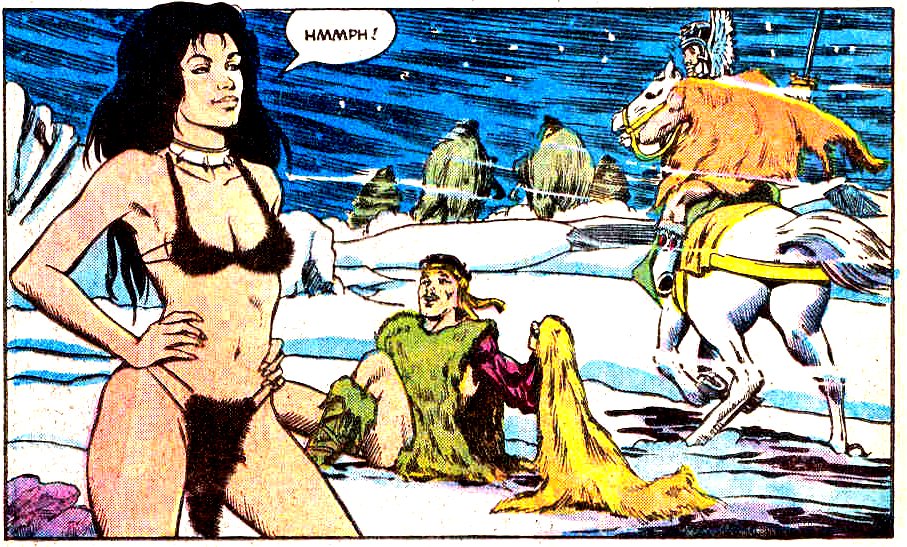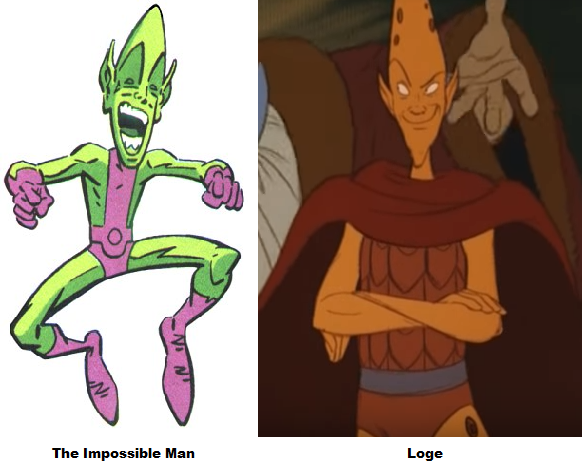
David Bowie and Elvis Costello each confront their respective Doppelgängers:
48. David Bowie, “Width of a Circle” (1970):
49. Elvis Costello, “My Science Fiction Twin” (1994):

David Bowie and Elvis Costello each confront their respective Doppelgängers:
48. David Bowie, “Width of a Circle” (1970):
49. Elvis Costello, “My Science Fiction Twin” (1994):

Two possible futures for New York City:
46. David Bowie, “New York’s in Love” (1987):
47. Billy Joel, “Miami 2017 (Seen the Lights Go Out On Broadway)” (1976):
Just as, in the previous story, a daughter’s abduction led to destructive revenge by her mother, so in Verdi’s Rigoletto (“Operavox,” 1995), based on Victor Hugo’s play Le Roi s’amuse, a daughter’s abduction leads to destructive revenge by her father – though in this case the daughter ends up in the realm of the dead permanently rather than on a seasonal basis. (This version muddies the plot a bit, for no clear reason.)

44. David Bowie, “Cat People (Putting Out Fire)” (1982):
From the soundtrack of the 1982 remake of the 1942 movie about a lineage of women who transform into panthers:
45. Devo, “Jocko Homo” (1978):
And this song is a tribute to H. G. Wells’ novel Island of Dr. Moreau, about a scientist who operates on animals to transform them into humans. (The song’s refrain is a reference to the litany recited by the uplifted animals in the book: “Not to go on all-fours; that is the Law. Are we not Men? Not to suck up Drink; that is the Law. Are we not Men?”)
Another version:

Handy household robots ….
42. David Bowie, “Little Toy Soldier” (1967):
43. Daft Punk, “Technologic” (2005):
One Ring for the Dwarf Lord in his hall of stone ….
As different as they seem, Oberon/Auberon, the king of the fairies in British and French folklore (and thus in Shakespeare’s Midsummer Night’s Dream), originates as a variation on Alberich, the dwarf king of Germanic folklore, whom Richard Wagner in turn combined with the Icelandic dwarf Andvari in his operatic mashup of Germanic and Icelandic versions of Norse mythology together with the Rhinemaiden legend, the Hesperides legend, and Feuerbachian and Schopenhauerian philosophy, in his Ring Cycle which kicks off with Das Rheingold, here adapted in 1995 as part of the “Operavox” series:
The visual portrayal of the Rhinemaidens may be influenced by Arthur Rackham’s:

Freya, by contrast, looks as though she stepped out of a 1970s sword-and-sorcery comic:

And Loge (Wagner’s mash-up of Loki the trickster-god with Logi the fire-god) strongly resembles the Marvel Comics trickster character, the Impossible Man:

| M | T | W | T | F | S | S |
|---|---|---|---|---|---|---|
| 1 | 2 | 3 | 4 | 5 | 6 | |
| 7 | 8 | 9 | 10 | 11 | 12 | 13 |
| 14 | 15 | 16 | 17 | 18 | 19 | 20 |
| 21 | 22 | 23 | 24 | 25 | 26 | 27 |
| 28 | 29 | 30 | 31 | |||